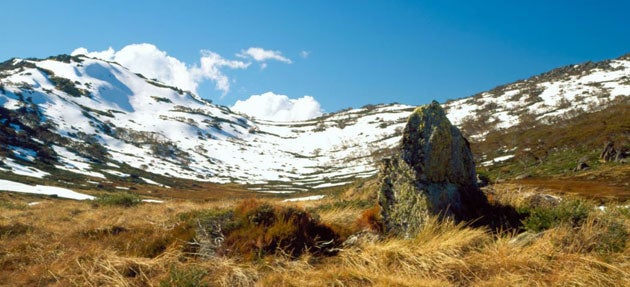Australia acts to save 'Alps' from climate change

Australia's most spectacular mountain landscapes, home to unique native species, have been placed on the national heritage register.
The Alps of south-eastern Australia cover an area of 1.5 million hectares and encompass 11 national parks and reserves. The site is the largest and most complex to be heritage listed.
It includes the Snowy Mountains, which inspired Banjo Patterson, one of Australia's best known "bush poets", to pen his famous ballad in 1890. "The Man From Snowy River" narrates the story of stockmen chasing a valuable escaped horse, with all but the young hero eventually defeated by the rugged country.
While the area is best known for spawning the myths and traditions that helped Australians forge a national identity during the pioneer era, it is also highly significant to Aborigines. Occupying an important place in their "Dreamtime" mythology, it was a location where they gathered in summer to feast on migrating Bogong moths.
The Environment Minister, Peter Garrett, said the listing recognised the "outstanding natural, indigenous and historic values" of the Alps. He said they were "an important place of dreaming and gathering for Aboriginal people, and of recollection and discovery as former grazing land traversed by stockmen, gold prospectors, pastoralists, migrants and botanists of early settlement". With the Alps containing Australia's handful of ski resorts, not everyone welcomed their listing. Tourism operators said it would be more difficult for new developments to gain approval.
The region is home to rare flora and fauna, such as the snow gum and mountain pygmy possum, and is carpeted with wildflowers in summer.
The main threat facing it, though, is climate change. Just a week before the heritage listing was announced, the Australian Conservation Foundation named it as one of 10 national "icons" most at risk from rising global temperatures.
A temperature rise of one degree would destroy the habitat of the mountain pygmy possum, which would be likely to become extinct by 2030.
Join our commenting forum
Join thought-provoking conversations, follow other Independent readers and see their replies
Comments
Bookmark popover
Removed from bookmarks